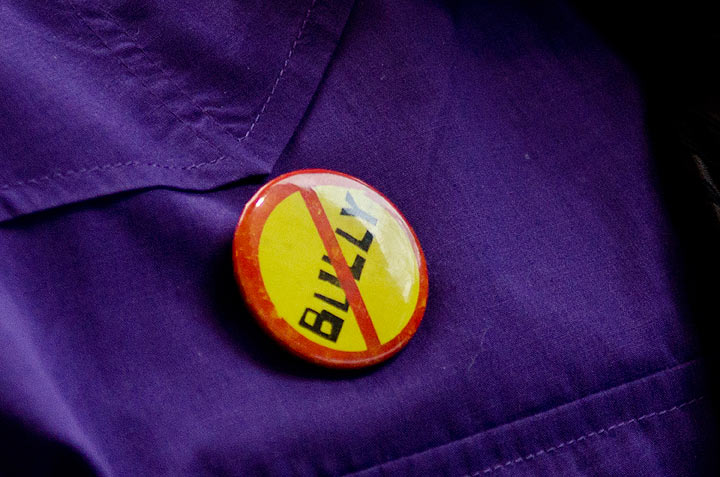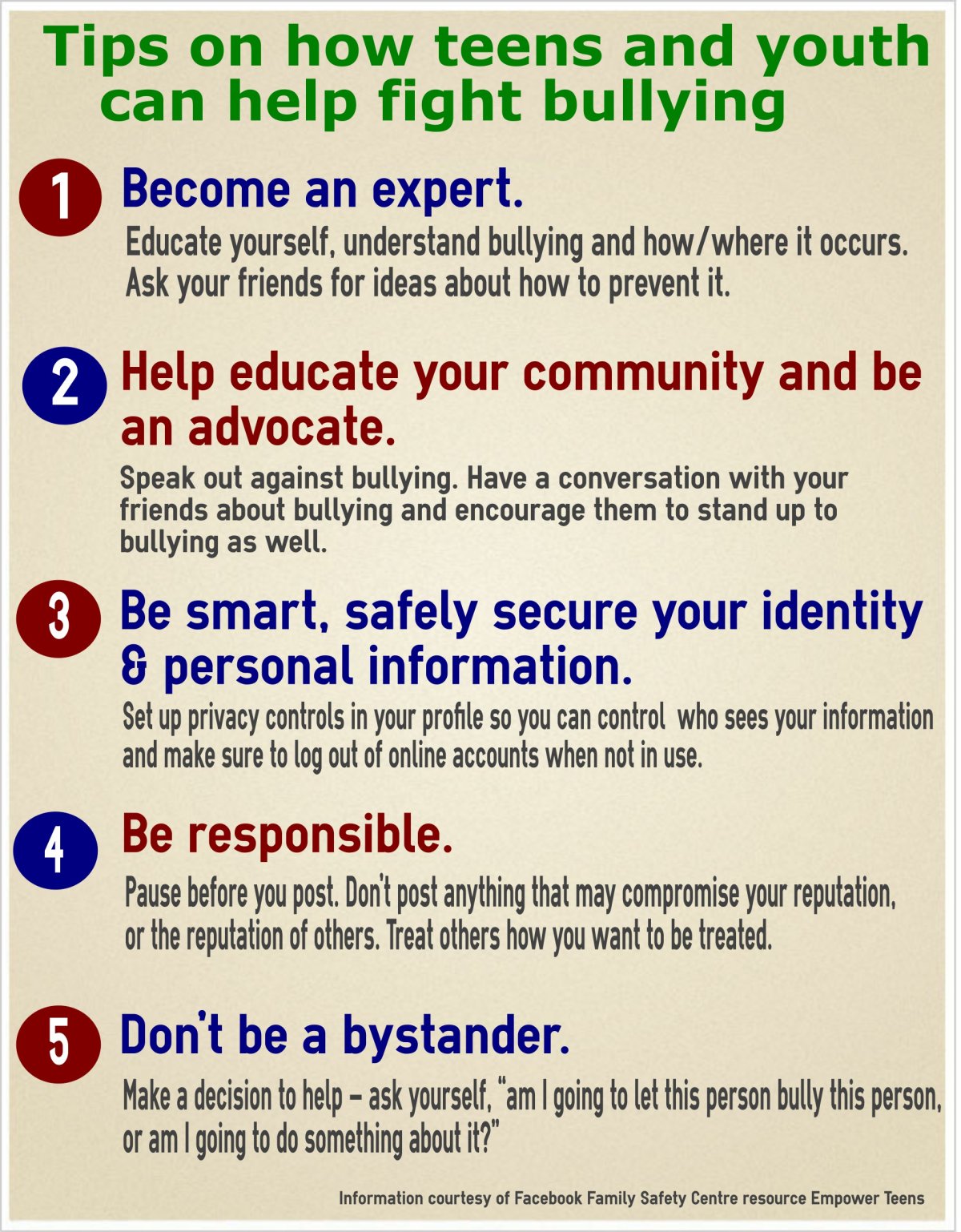TORONTO – Activists and organizations are encouraging Canadians, particularly youth, to work together on tackling the issue of bullying and cyberbullying in our communities through education and awareness.

“Bullying and cyberbullying are complex issues that require all of us to do our part,” said Steven Blaney, minister of Public Safety and Emergency Preparedness in a statement Monday. “Everyone from government representatives, educators, non-governmental organizations, police, and community groups, parents, and youth have an important part to play in stopping bullying and cyberbullying in Canada.”
The recent call to action coincides with Bullying Awareness Week,” which runs from November 16 to 22, and is seen an important initiative by experts, “as is it helps to draw attention to the serious issue of bullying.”
With about 20 million Canadians active on Facebook each month, advocates say social media sites like Facebook and Twitter continue to be powerful tools for young people in the fight against bullying.
“Safety is a conversation, and young people should definitely get involved,” said Kevin Chan, head of public policy at Facebook.
“Because youth are heavily influenced most by one another, we believe that by showing a little courage and confronting these issues as they arise, young people can make a big difference.”
Getting involved
Earlier this fall, Okanagan’s Caitie Shaw created the #Cyberlove youth empowerment campaign in memory of Amanda Todd. Todd was a 15-year-old student from B.C. who committed suicide in October 2012 shortly after posting a video detailing the years of cyberbullying she experienced at school and on the Internet.
READ MORE: A look at anti-bullying measures in Canada since Amanda Todd’s death
Shaw said she wanted to connect with and empower youth all over the world to create positive change, counteract cyberbullying and make social media a positive place.
“The goal is to send a message to someone who really needs it, whether it be a friend or a stranger,” she said.
Launched in 2011, Toronto’s Kate Whitfield’s Fearlessly Girl initiative uses Facebook to unite and inspire young women across the country by providing girls with a space to come together, share stories, discuss important topics and make friends. The goal of the campaign is to boost self-esteem, sisterhood, school spirit, create a positive school environment and provide every girl with the “tools she needs to become a strong, confident, fearless young woman and have a successful high school experience.”
READ MORE: Reality check – Bullying rates in Canada
“It’s a movement of real girls, redefining what is beautiful, valuable and possible,” said Whitefield. “It is our mission to inspire each girl to be curious, ask questions, and be authentic, brave and totally fearless when it comes to understanding who she is, pursuing her dreams, blazing a trail and making her spectacular mark on the world.”
The campaign’s newest initiative is their anti-bullying movement FearlesslyKind, which offers school assembly programs and classroom curriculum in hopes of igniting a movement of kindness and compassion among girls in schools across Canada, “putting an end to the devastating effects of girl-against-girl bullying.”
“Having the Facebook platform for these young women to share their incredible stories is igniting a movement of youth being bold and fearless and following their dreams,” said Whitfield.
- Posters promoting ‘Steal From Loblaws Day’ are circulating. How did we get here?
- Canadian food banks are on the brink: ‘This is not a sustainable situation’
- Video shows Ontario police sharing Trudeau’s location with protester, investigation launched
- Solar eclipse eye damage: More than 160 cases reported in Ontario, Quebec
In January 2014, the government of Canada launched the anti-cyberbullying awareness campaign Stop Hating Online to raise awareness among Canadians of the impact of cyberbullying and how this behaviour amounts to criminal activity.
How can teens help prevent bulling?
There are several online social media tools that youth can use to help fight bullying.
Be Bold Stop Bullying, for example, is a social pledge app that aims to inspire bystanders to speak up when they see bullying occur. Meanwhile, the Help a Friend in Need guide — a partnership with Kids Help Phone — is an online tool to help alert young people of potential warning signs that a friend might be in emotional distress.
READ MORE: Facebook launches Canada-wide anti-bullying campaign
Advocates say when it comes to bullying, never retaliate or get back at the responsible person, don’t forward hurtful messages, laugh at improper jokes or content, or support the behaviour just to fit in and to remember that “it’s never you fault.
“Bullying is never acceptable,” said Bill Belsey of Bullying.org. “No matter what, no one has the right to intentionally hurt another person.”



Comments